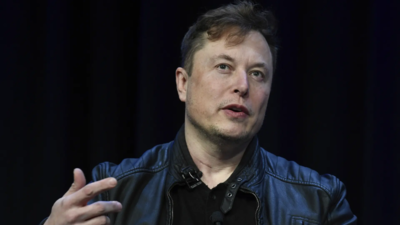Elon Musk, head of the department of government efficiency (DOGE), detailed the agency’s ambitious cost-cutting initiatives in an exclusive interview with “Special Report” on Thursday. Joined by seven team members, Musk emphasised the goal of reducing government waste and fraud to achieve a 15% spending reduction.
“The government is not efficient, and there’s a lot of waste and fraud,” Musk said. “We feel confident that a 15% reduction can be done without affecting any critical government services.”
Musk, alongside DOGE members Steve Davis, Joe Gebbia, Aram Moghaddassi, Brad Smith, Anthony Armstrong, Tom Krause, and Tyler Hassen, provided insight into the department’s efforts across various federal agencies, including the Internal Revenue Service, the Interior Department, and Social Security Administration.
Describing the initiative as a “revolution,” Musk asserted, “This might be the biggest transformation in government since the original revolution. At the end of the day, America is going to be in much better shape.”
According to DOGE’s official website, the department claims to have saved American taxpayers a total of $130 billion as of March 27, amounting to approximately $807.45 per taxpayer.
Federal spending overhaul
US President Donald Trump established DOGE with the mandate to optimise the federal government, enhance efficiency, and slash excessive spending within an 18-month timeframe. Since its inception, the department has eliminated various diversity, equity, and inclusion (DEI) initiatives, cancelled consulting contracts, terminated leases on underutilized federal properties, and consolidated overlapping government programs.
During the interview, Davis highlighted an example of government inefficiency: federal employee credit cards. “There are around 4.6 million credit cards issued to approximately 2.3 to 2.4 million employees. That doesn’t make sense. We’ve been working with agencies to determine whether all these cards are necessary and if they are being used responsibly,” he explained.
Musk responded, “Clearly, there should not be more credit cards than there are people.”
Controversy and political divide
Despite its cost-cutting mission, DOGE has faced intense scrutiny. Critics argue that the agency wields excessive influence over federal operations and should not have unilateral authority to terminate contracts or restructure agencies. Musk pushed back against these concerns, saying, “They may characterise it as shooting from the hip, but it is anything but that. We measure twice, if not thrice, and cut once.”
He acknowledged the possibility of missteps but emphasised the department’s commitment to swift corrections. “If we were to approach this with the standard of making no mistakes at all, that would be like saying someone in baseball has to bat a thousand. That’s impossible. When we make mistakes, we correct them quickly and move on.”
Musk also challenged critics to specify which cost-saving measures they oppose. “They claim what we’re doing is unconstitutional or illegal, but they fail to point out which line of savings they disagree with.”
The DOGE leader affirmed that Congress remains informed of the department’s actions. “The law mandates that money be spent correctly and not wasted. Preventing fraud and waste is not contrary to Congress—it aligns with the law.”
While many Republican lawmakers have voiced strong support for DOGE’s initiatives, opposition from Democratic lawmakers remains steadfast, with concerns about transparency and oversight continuing to fuel debate over the department’s role in government restructuring.




